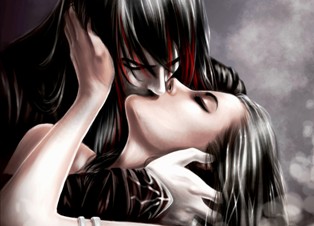Reasons Writers Must Share Writing

When speaking to writers’ groups or other authors, I always end up in debates about sharing our work.
- “I don’t want others to know what I’m working on.”
- “No one needs to see this drivel before it’s ready.”
- “I don’t want my ideas stolen.”
Do any of these comments sound familiar?

Writers, seriously, let go of the fear and embrace the concept of sharing. The word means “to give a portion of something to others” and “to use, occupy, or enjoy jointly with others.” In our case as writers, we give, use and enjoy. Or, we should. Why?
First, let me debunk a myth about if you share your work before it’s copywritten, it will be stolen and you’ll be out of luck. Really? Are you that good? If so, why are you worried? Get that superior thing to your agent and publisher right now! What’s that? You don’t have either one? Then listen up. There is nothing left to write that’s original. Like music, everything’s been done. Your job is to find a way to make what’s been done, unique. You change characters, change settings, change time periods, change the ending, etc. All the plots have been done, it’s what YOU do with your idea that makes your story yours. No one can tell your tale like you, even if they try to do it before you. They can’t write what you write, the way you write it. So, relax and share.

Now, why share?
- First, sharing your work build confidence in your abilities. I was very insecure when I started writing and it took all my bravery to offer my work to someone. What if they hated it? What if it turned out I couldn’t write? Sharing builds confidence in self. No matter what is said, you will learn to trust in your ability with time. The confidence you find in feedback and in connections will prove to be invaluable.
- Next, sharing toughens you. Building on the first reason, writers have to develop confidence but along the way, the criticism toughens the emotional skin and allows the writer to actually learn from mistakes. Hearing what you’ve done wrong is hard but continuing to do it wrong because you’ve never been told is worse!
- Following with the criticism, sharing gives you invaluable feedback. How well is your work received? Do your readers like your characters? Is your genre hitting the mark or falling flat? Is this something others would buy? This kind of feedback is critical to your future success.
- Sharing can also be inspiring. As you offer your work, others will offer to you. You see what they write and how. You read new ways to approach subjects and maybe are inspired by exciting new characters. Perhaps you discover a new genre or a new approach to an old one. Maybe the quality of someone’s writing sparks your muse. Those discoveries don’t happen without sharing.
- Finally, sharing means entering competitions. Start small if you feel insecure. Local or regional contests. Then branch out as your writing improves. Collect feedback from teachers and judges. Learn to revise and compete again.
One last point of sharing that experienced writers and authors know is the value of the beta reader. You must use beta readers if you want to be published. Beta readers are people who look over your manuscript and are those extra eyes reading for content mistakes, plot holes, grammar and punctuation misses, oddities (like missed hyphens and oxford commas), and overall appeal. Beta readers tell you what works and doesn’t and why. They are critical to a book’s success. And if you don’t share, they can’t care and you don’t win.

I’ve been writing and sharing for a long time and I still get shivers when I hand writing to someone else for a critique or a cold read. Nerves mean you care about your work and it matters what is said. That’s good.
Remember that nervous feeling when someone asks you to read something they have written. Be understanding and thorough because they are depending on you, just as you have on others.
Sharing is caring, folks, about your work and the responses to it. That kind of caring will only make for wonderful improvements. For writers and authors that’s money in the bank. For readers, that’s great books! And that’s win/win for everyone. So be not afraid. Share!
Thanks for stopping by,
Yours Between the Lines,
Sherry
PS Next time, sneak peek into the new novella!
_________________________________________________
****The following items will always appear to keep you posted on activities.*****
WIP (Works in Progress):
– Writer’s Workbook – Learning to Write Everyday – Beginners Volume (expected July 2017)
– first novel in the Evening Bower series, about vampires and other supernatural creatures (Nov 2017)
– prequel novella to the Bower series (May 2017)
– four-part fairy story (part one complete) (Christmas 2017)
On the Desk: (next reading): nothing yet
Off the Desk (book just finished): A Conjuring of Light by VE Schwab
Coming Soon: More tips while writing that novel/Interviews/Odd Thoughts/Book Review

















